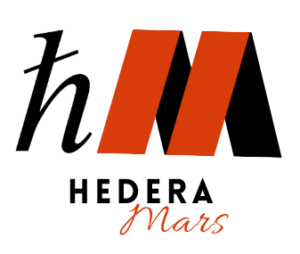Blockchain and Cryptocurrency Transforming Tech Ownership
Tokenized technology, driven by blockchain and cryptocurrency, is revolutionizing the way consumers view ownership of their gadgets. This advancement offers verifiable digital proof of ownership, the creation of decentralized marketplaces, and innovative subscription models. While smart contracts facilitate automated transactions and enhance security through anti-theft measures, challenges related to regulation and user adoption still exist in this evolving landscape.
The Evolution of Tech in the Digital Age
In today’s fast-paced digital environment, the rapid advancements in technology have significantly altered our interactions with gadgets. Devices, from smart home appliances to wearable technology, are becoming increasingly advanced and interconnected. A new trend is emerging: tokenized gadgets, which leverage blockchain and cryptocurrency to redefine ownership in the consumer electronics sector. This article explores what tokenized gadgets entail, how blockchain and crypto facilitate them, and their implications for the future of tech ownership.
Understanding Tokenized Gadgets
Tokenization involves the conversion of ownership rights into digital assets that are securely stored on a blockchain. In the context of gadgets, this means that devices can be associated with unique digital tokens that signify ownership, usage rights, or access permissions. For instance, rather than outright purchasing a smartphone, a consumer could instead acquire a fractional interest in the device through a blockchain-based token. This concept extends beyond mere hardware; software licenses, firmware updates, and digital rights can also be tokenized, allowing users to have genuine control over their devices in a decentralized manner. Examples of tokenized gadgets include blockchain-enabled gaming consoles that utilize NFTs for ownership verification, smart home devices with encrypted credentials stored on the blockchain for enhanced security, and wearables with tokenized ownership that facilitate resale without intermediaries.
Blockchain and Crypto’s Impact on Tech Ownership
1. **Genuine Ownership and Digital Scarcity**
A notable challenge in the current tech landscape is that consumers often do not possess true ownership of their devices due to proprietary software restrictions. Tokenization addresses this issue by providing blockchain-based proof of ownership. A blockchain-linked NFT (non-fungible token) could serve as a digital certificate confirming a user’s rightful ownership of a device, thereby clarifying digital rights and preventing companies from remotely revoking access.
2. **Decentralized Marketplaces for Gadgets**
Presently, second-hand tech transactions heavily rely on centralized platforms like eBay or Facebook Marketplace, where trust in third parties is necessary. With tokenized gadgets, users can engage in peer-to-peer transactions on blockchain-based platforms, eliminating the need for intermediaries. Smart contracts can automate these transactions; when a buyer purchases a tokenized gadget, ownership rights are instantly transferred on the blockchain, ensuring a trustless and fraud-resistant process.
3. **Subscription-Based Ownership Models**
Envision paying for a laptop, VR headset, or smart TV through a blockchain-driven subscription service. Instead of incurring a hefty upfront cost, users could opt for micro-transactions in cryptocurrency for temporary access to gadgets. This model allows manufacturers to offer hardware-as-a-service (HaaS), which could help reduce electronic waste and promote sustainability. Additionally, tokenized gadgets might include automatic software upgrades via blockchain, ensuring users always have the latest technology without needing to frequently replace their devices.
4. **Improved Security and Anti-Theft Solutions**
Tokenized gadgets provide heightened security measures, thwarting unauthorized access or theft. Blockchain technology offers immutable and verifiable records of ownership, which means stolen devices could be locked and tracked on a decentralized ledger. For instance, a stolen smartwatch could become inoperable unless the legitimate owner transfers the ownership token, potentially decreasing tech theft and promoting ethical second-hand sales.
The Role of Cryptocurrency in Tokenized Gadgets
Cryptocurrency is essential in facilitating tokenized gadgets by streamlining transactions, enabling smart contracts, and enhancing decentralized finance (DeFi) models. Some ways crypto is applied in this domain include:
– **Crypto Payments for Tokenized Gadgets:** Consumers can buy and trade tech devices using cryptocurrencies such as Ethereum, Bitcoin, or Stablecoins. The integration of cryptocurrency payments eliminates international transaction challenges, making cross-border gadget acquisitions more feasible.
– **Staking and Renting Gadgets:** Users could stake tokens to temporarily access high-end devices, similar to how car leasing works. This model opens avenues for temporary ownership without the risk of permanent loss of access.
– **Tokenized Warranty and Repairs:** Instead of navigating lengthy warranty processes, consumers could possess blockchain-based warranty tokens that automatically trigger services according to pre-defined conditions. As blockchain adoption broadens, major crypto exchanges like Kraken ETH are making it easier for users to access Ethereum, which supports numerous tokenization initiatives.
Challenges and Considerations
While tokenized gadgets present promising prospects, several hurdles must be tackled for widespread acceptance:
– **Regulatory Challenges:** Varying blockchain and crypto regulations across countries complicate the establishment of standardized ownership models for tokenized gadgets globally. Governments must create clear legal frameworks for digital asset ownership.
– **User Education and Adoption:** Many consumers lack familiarity with blockchain and cryptocurrency, which may hinder adoption. Technology firms need to invest in user-friendly interfaces and educational materials to make tokenized ownership models more approachable for everyday users.
– **Environmental Concerns:** Some blockchain networks require substantial energy resources. However, environmentally-friendly blockchains like Ethereum 2.0 and Solana are striving to minimize their ecological impact, making tokenized gadgets more sustainable.
The Future Outlook for Tokenized Gadgets
As blockchain technology progresses, tokenized gadgets are set to transform how consumers own, trade, and interact with tech devices. This shift towards decentralized ownership will provide consumers with:
– Enhanced control over their digital assets
– Secure and transparent transaction processes
– Innovative subscription and leasing options
Leading technology brands are already investigating Web3 integrations, and as cryptocurrency adoption grows, tokenized gadgets will likely become a commonplace reality.
Interoperability and Cross-Platform Integration
A particularly exciting aspect of tokenized gadgets is their potential for seamless integration across various platforms. Currently, many technological ecosystems are confined within proprietary boundaries; for example, Apple devices perform optimally with other Apple products, and specific smart home devices require designated hubs. Blockchain-based tokenization could dismantle these barriers, establishing decentralized, universal ownership records that enable devices to communicate across different systems. For example, a tokenized smartwatch could authenticate on any fitness application without needing a separate login, or a gaming console could validate ownership across various brands without restrictive digital rights management. This shift could herald a new era of consumer freedom, allowing users to genuinely own and manage their devices irrespective of the manufacturer.
Conclusion
Whether it’s using NFTs for ownership verification, purchasing gadgets through cryptocurrency, or renting devices with smart contracts, the future of tech ownership is poised to be decentralized, secure, and blockchain-enhanced. Are you prepared for the next phase of innovation? Stay informed on how blockchain is reshaping consumer technology, as the future is indeed tokenized.

